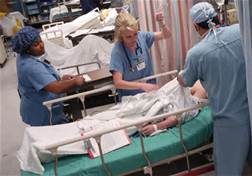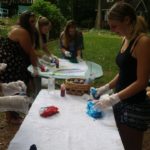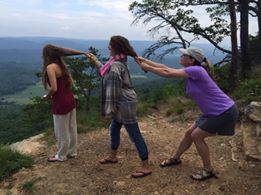Communication with your Community Counselor
It is very important to stay in communication with your counselor. Without at least monthly conversations, it is impossible for your counselor to know what is going well for you or what you need help with. The State Department of our Government sets the rules for which APIA must follow. One of those rules is that you must have at least one communication with your counselor per month. Most of our communication will take place at our monthly meetings. If you do not attend a cluster meeting, it is important that you talk with your counselor that month and discuss how your year is going.
Cluster meetings are mandatory. This is part of your contract with APIA. You will not always be able to attend. The following are reasons that you might not attend a cluster meeting:
- You are sick.
- You have an education class.
- Your host family has a conflict in the schedule.
- You are concerned about the cost of the meeting.
These are the only acceptable excuses. If you must miss a meeting for one of the above reasons, please call and let me know. If you miss more than three meetings during your year, I will not be able to give you a good recommendation in reference to your participation with APIA.
There are other times you MUST call and talk with your counselor:
- When you go on vacation with your family or on your own.
- To report any accidents: car, personal, in the home, with host children
- If you are involved in an incident in which the police or firemen are present: fire, accident, robbery, etc.
- If there are any concerns with the host family which harm you in any physical or emotional way.
- If any incident occurs with you which may compromise your completion of the year.
- If your host mom is expecting a new baby.
- If your host family plans to move.
Many common questions can be answered without calling your counselor.
The official website for Au Pair in America ( www.aupairinamerica.com then scroll to the bottom and click ” current Au pair”) is a great place to search for interesting facts or important information. Our cluster blog site is also a great place to find the answer you are looking for. The following are examples of questions you can answer on the website or on our blog.
- Where can I go to the doctor?
- What do I need to get my driver’s license?
- What do I need to travel to another country?
- How do I pay my USA taxes?
- What activity can I do with my host children? Your counselor is always glad to communicate with you. You are always welcome to contact your counselor. Here are some things to remember:
- It might not be possible for her to speak to you or to respond to your text at the exact time you want.
- If your counselor does not answer the phone, she may be in a meeting or talking with someone else. If this is the case, you will reach her voice mail. Voice mail in the USA is an important way businesses operate.
- Your Counselor will not know that you called if you do not leave a message. Please call once and leave a message.
- Do not call or text multiple times. It is only necessary to leave one voice mail or text message within a 24 hour time.
- Please don’t feel shy about your English skills. Your counselor is in the habit of listening to au pair messages and she will be able to understand you.
- If you have an emergency, your counselor will call you back as soon as she receives your message. If you cannot wait on your counselor with an immediate emergency, call the after-hours emergency number for Au pair In America and follow the prompts for emergency assistance.
- If you are calling to say hi or with a question, she will return your call within 24 hours.
- Most counselors have set office hours. If you call or text outside of these hours, and you do not have an emergency, she will call you back on the next business day.
- Resist texting after hours or on the weekend. Send an email and your counselor will answer this when she returns to work on the next business day.

Counselors love talking with au pairs and look forward to hearing how your year is going! Counselors also love hearing about ideas for cluster meetings. So, call soon!!




















